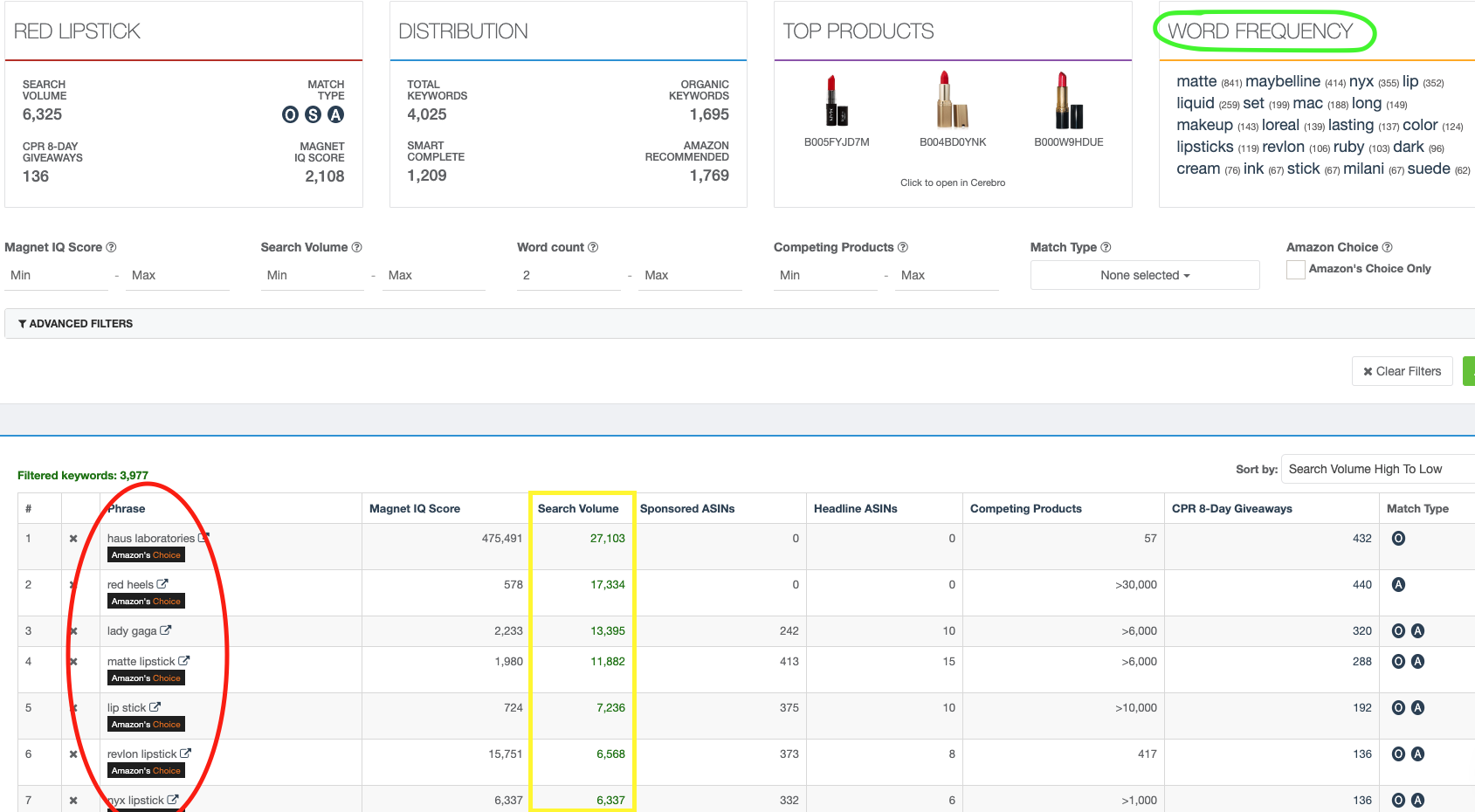Perfecting your Amazon Search Engine Optimization (SEO) is the best way to make sure your products are highly ranked so they can easily be found by Amazon customers. Amazon uses its own algorithm called A9, which considers many different factors to determine the rank of a listing. The ultimate goal for any seller on Amazon is to have top-ranking products. These listings come up as the top results in a search, have high conversion rates, and bring in the most revenue compared to lower-ranked competitors of a similar product.
In this blog, we are going to discuss the first, most crucial step in the optimization process, which is keyword research. As a seller, you need to understand the relevant search terms and keywords that customers are using to search for your products, and ones similar to it. In order to write a listing that will perform well with the Text Match Relevance ranking factor of A9, you need to understand which terms you must include for it to be considered relevant enough to rank higher. Keyword research determines all of this information for you and helps create the blueprint for composing a comprehensive product listing. For more information regarding A9, please refer to our last blog post HERE.
Many people don’t understand the importance of including relevant keywords into their listings and how much they can help improve ranking on Amazon. A beautiful looking listing without any relevant keywords will never be seen by the customer, so it is imperative to put in the time and effort to create a robust list of keywords to use. You will be putting yourself ahead of the competition just by completing this simple first step. Keyword research can be confusing and overwhelming, however, in this post, we are going to help breakdown the keyword research process and show that it is easier than you think.
The main characteristics you are aiming for when doing your keyword research is relevance, visibility, and conversions. There is no perfect formula for performing this research, and no right or wrong way to go about it. The benefit of this is that the process can be personalized to whatever works best for you and your products.
Tips to Forming Your Keyword List
- Understand your Competitors:
- Determine which products are the most successful in your category and pull keywords from those listings.
- Choose the highest ranked 3 or 4 products for your category (as well as ones with the most reviews) and sort through keywords from these listings as well.
- You should always be monitoring your competitors and updating these lists periodically as the marketplace is ever-changing and updating.
- Put yourself in the customer’s shoes:
- Determine what you would search for to end up at your product.
- This should include the mindset of someone who knows what they want vs. new traffic from someone who has no idea about your product.
Once you have composed a useful list from your organic research, use one of the many available data analysis resource tools to cross-reference your terms further. Many people probably know good search terms for their own product, however, they may not know the top one. A search volume comparison tool can help you to determine what people are searching for the most in regards to your product.
If you are selling red lipstick, you may think the most ranked term for this product is, obviously, ‘red lipstick’; however, other words may actually rank higher. In the example below, we used Helium10’s Magnet Keyword Research tool to search for the keyword ‘red lipstick’ and then sorted the results by the search volume.
The top relevant keywords (not other competitor brands*) should be considered when creating your list. Now, calling your product “Red Matte Lipstick” or including the feature, “A red lipstick that pairs perfectly with your red heels!” will help increase your listing’s rank over just using the term ‘red lipstick.’ The word frequency box listed in the top right corner can also give you insight into what words people are searching for the most when it comes to your product.
*This is a perfect example of how keyword research does not have an exact formula because other competitor’s brands are shown in the top-searched phrases for this keyword. Sometimes, words that are entirely irrelevant to your search will be in there as well. This is where you have to use your common sense to remove or ignore these terms because although they may rank for your listing, they are obviously not relevant. However, this information can also be useful to give you insight into who your top competitors are and which keywords are ranking for their products.*
Another useful tool is reverse ASIN lookup. You simply input your product’s ASIN, and it will allow you to see the top competitor ASINs for your listing and which search terms and keywords they rank for. Depending on which tool you use, these can then be sorted by search volume, ranking, and other important qualifying factors. Since the details of every listing vary, it is up to you as to how you want to use this information and to determine which keywords will work best for your specific product.
There are many other useful tools out in the market that can help with keyword research, but these are just a few basics for beginning your keyword research journey. Once you have completed both organic and empirical research, combine these lists to establish which keywords you want to use and emphasize throughout your listing. As stated before, there are many various ways to go about conducting the research to find the perfect formula that works for you. In upcoming blog posts, we will be discussing the best ways to place these keywords throughout your listing, so that they’re actually helping to drive traffic to your page, boost your product’s ranking, and increase conversions.
Keywords are Key to Success on Amazon
Keyword research requires time, dedication, and research. The proper keywords will help a listing more than most other factors. If you feel like you just don’t have the time, resources, or knowledge to dedicate to creating the perfect list of keywords for your products on Amazon, reach out to Amazzia! Our expert marketing team is skilled and educated in helping to optimize your listings to their highest selling potential!




